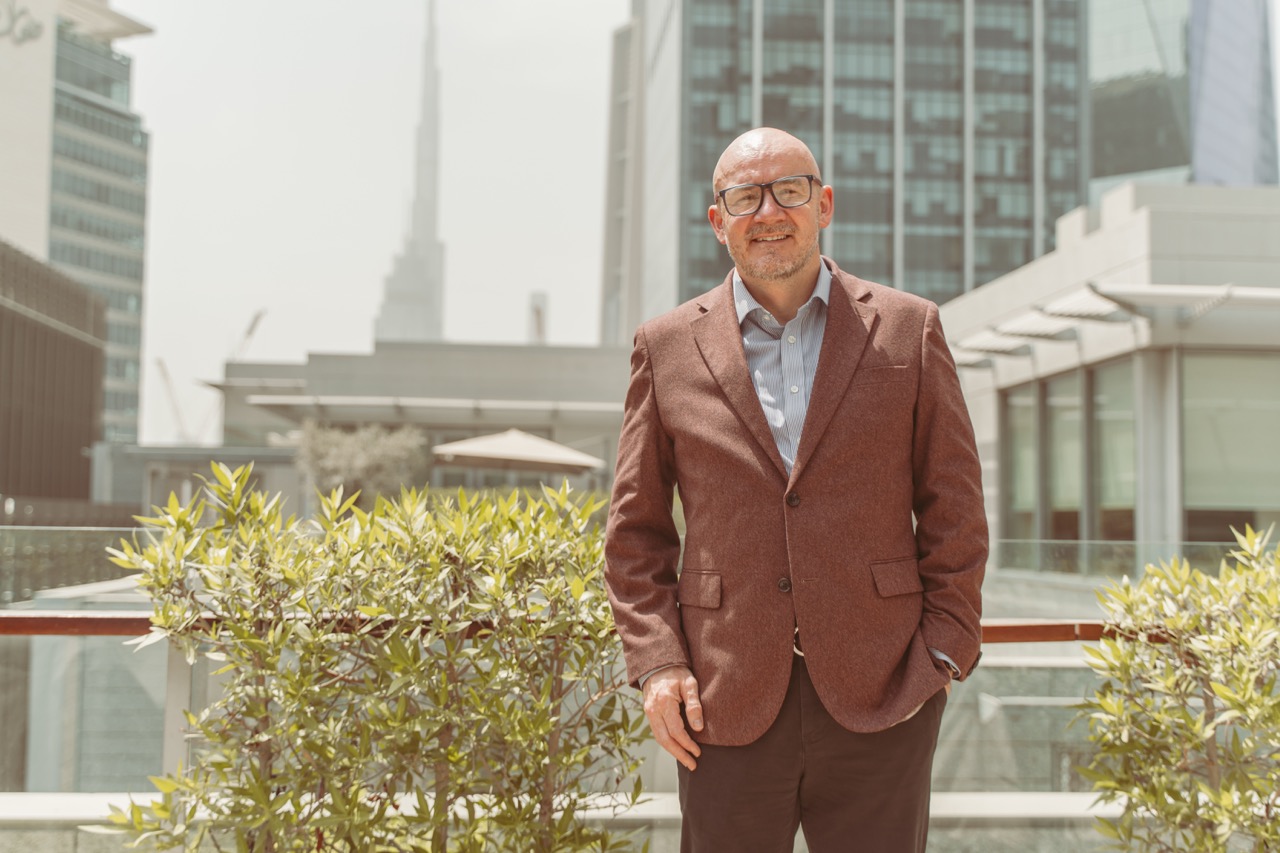Pride and Personal Responsibility
Read the speech that was delivered by Greg Ellison, CEO, at our monthly staff update.
I had some fantastic feedback about the company this week from a recruitment agency on the Isle of Man. They had just sent another of their candidates for a job interview with us for the HR role that we’re advertising at the moment. As usual, they speak to the candidate after their meeting and they were blown away with our business, the people they met, the energy and the feel of the place.
The recruitment agency that provided this feedback were finding more and more of their candidates that they had sent to us were coming up with the same conclusions. So they took it on themselves to let me know they think our reputation in the market is becoming brilliant, and their candidates are all coming back to them desperately wanting to work for us.
It was very nice of them to take the time to tell us this. But more importantly, it says so much about what we’re creating here at Capital. And it made me feel really proud of what we stand for and the business we’re becoming.
So I wanted to talk to you today about pride. We can all think about times where we have felt proud of people.
Children, brothers, sisters, friends . . .
I remember my daughter Lily winning ‘Star of Stars’ at the annual prize-giving at school. The school commended her kindness, enthusiasm and how, above all others in her year, she was demonstrating the values that the school stood for. She was about 7 or 8 years old at the time and when they read her name out as the winner, her face lit up with pure, unbridled joy.
It could have been quite embarrassing sitting in the audience with all the other parents with tears running down my face! But I didn’t care, because I felt like the proudest man in the world.
So what does pride mean? What is it all about?
According to Wikipedia:
- a feeling of deep pleasure or satisfaction derived from one's own achievements or the achievements of one's close associates;
- there’s also another definition of pride as a ‘group of lions forming a social unit’ but that’s not what I’m talking about today.
I’m sure you can think of times where you’ve been proud of yourself, where you’ve worked really hard to achieve something, or where you’ve come through adversity, when it’s been tough and you’ve gritted your teeth and got through, whether at work, or school or college or at home.
When I hear people talk about our business in such glowing terms as the recruitment consultant did, it makes me proud.
I felt very proud yesterday when I heard Doug Hornby and Nick Kohne present their plans for the new on boarding platform to the Group Board. Aside from setting the general direction for them, so they knew what I wanted them to achieve, I have not been directly involved in their work for a few weeks. Accordingly, what they demonstrated yesterday was that they had dug deep, gone into masses of complexity and detail, and created a plan, which was exactly in line with what I had asked them to do. And they were there pitching for several hundred thousand pounds of investment to build what they had designed.
They got the green light, because the pitch was clear, concise and because they knew what they were doing. They’d done the detail and they knew they just needed to get on with it. They have the confidence of the Group Board and the shareholders, and it made me very proud of the work they have been doing with their teams.
I’m proud of what you all delivered in 2017. We took on a heavy workload and we set our expectations high and we worked together to achieve a lot of outstanding things last year. It wasn’t easy, but we saw it through, both here in the IOM and in SA.
And we did it for the most part with a smile on our faces, with a good energy in the office, having fun along the way and without ever taking ourselves too seriously.
So that’s what pride is all about.
What about personal responsibility? This is about being accountable for things within our own control. I believe that we’re all responsible for our results in life. In other words, the stage we’re at in our lives, in our work, in our relationships, in everything is caused by the decisions we’ve made and the actions that we’ve taken. We are the architects of our outcomes, we’re not an extra in our own lives, we play the leading role.
Not everyone in the world shares this belief. Occasionally I might come across people, possibly at work, who totally believe in responsibility for results … when things are going well. They hit their targets because they did this and this and this. Those same people at times then have a totally different view of the world when something hasn’t worked. It’s the product, the system, the customers, their team, the weather, whatever else they can come up with!
Well it can’t work both ways, when you’re responsible for your results, you can rightly take the praise when you’re winning, but you’ve also got to take responsibility when you’re losing.
Because that’s when we learn, when we’re honest with ourselves.
So, personal responsibility is about showing ownership.
It’s the opposite of blame.
There are so many examples in the world of people blaming instead of taking responsibility.
I sent an article to the directors and managers earlier this week about the US Navy Seals and their view on leadership. The Navy Seals are like our Marines or SAS. The elite, mostly highly trained soldiers in the USA.
The email set out 8 principles that are demanded to be a Navy Seal. These are tested all the way through the recruitment process to make sure the people that make the mark can be counted on to hold these principles true.
No. 1 is Extreme Ownership: Taking responsibility when things go wrong and putting it right so it doesn’t happen again. Never blaming, just seeing it as it happened, and taking responsibility. If you’re leading people into battle, it’s pretty important that you take ownership of the situation because it creates trust among the team. And trust is important when you rely on your team members to keep you alive.
No. 8 is interesting - Decentralised Command: Making sure the Seals know what is expected of them, then letting them get on with it, confident that they’ll do what is right and to the best of their ability. Like when Doug and Nick and their teams got to grips with the onboarding project.
So why am I talking about pride and personal responsibility?
Because these are two characteristics that I want to promote. Behaviours that I want to see every day from us all at Capital. We focus a lot on our core values of innovation, integrity and excellence. These behaviours, pride and personal responsibility, are how we achieve excellence.
And I want to put this into context. When you work with people you have a contract with them. The company gives me money and in exchange I am expected to do x, y and z.
You make a deal. And it’s a lot easier to keep your side of the deal if you believe in what you’re doing and if you’re proud of who you work for, proud of who you’re working with and clear on why you’re in the business.
We have a deal – yes there’s the stuff written down in our employment contracts – but it’s much more than that. I see our deal as this:
We’ll invest heavily in you, in your development, in your career, in your reward, in your benefits and in giving you a great working environment.
Your side of the deal is to do your best to serve our clients brilliantly.
To keep the promises that you make to your colleagues.
To help people in the office you work in and to help our colleagues in our other offices.
To take responsibility both when it’s going well and when it’s not.
And to show real ownership and pride in the company, in the people you work with and in our offices.
We’ve invested a huge amount of money in our business here in the IOM and we’re about to do the same in SA and I want you to show real pride and responsibility.
So if you spill a drink, clear it up and make it right.
If there’s litter on the floor, pick it up.
If someone needs a hand, help them.
Make sure you leave your desk clear every night not just most of the time, but every time.
Keep the promises you make to clients and to each other.
Can you imagine how much more we’d get done if you went to a meeting and every single commitment that people had previously made had been done as promised?
Help your colleagues. Give them your time to help them, to show them how to do something, to support them if they’re having a tough day or they’ve got some challenges at home.
Deal in truth, get to the details, find the answers and do it without blame. It creates trust and a much healthier environment for us all to be working in.
When I talk about culture, I describe it as ‘the way it is around here’. The examples I’ve described about pride and personal responsibility are the way I want it to be around here. Great people, well looked after, a great environment, with high standards demonstrated all the time by all in the team.
Disclaimer: The views thoughts and opinions expressed within this article are those of the author, and not those of any company within the Capital International Group (CIG) and as such are neither given nor endorsed by CIG. Information in this article does not constitute investment advice or an offer or an invitation by or on behalf of any company within the Capital International Group of companies to buy or sell any product or security.
















